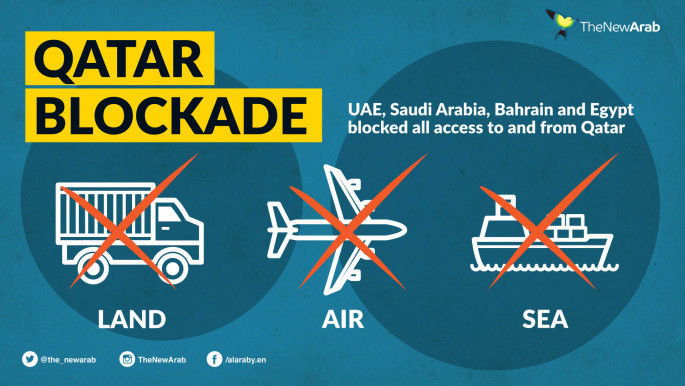France’s Macron steps up efforts with Morocco to mediate resolution of Gulf crisis
President Emmanuel Macron arrived on a 24-hour visit to Morocco on Wednesday as France steps up diplomatic efforts to mediate in the Gulf crisis that has led to an illegal blockade of Qatar.
In his first visit to Morocco since his election, Macron, and his wife Brigitte, were welcomed on the tarmac by King Mohammed VI.
Earlier this week, the Moroccan king offered to mediate in the diplomatic row between Qatar and other Arab League countries, seeking to "reduce tension" in the regional crisis.
Speaking at a conference shortly after arriving, Macron said that France and Morocco have a shared interest in resolving the diplomatic crisis in the Gulf.
"The king of Morocco shares our concern: France would like to see the countries talking again and for the Gulf to remain stable, not least because these states are stakeholders in the crises in Syria and Libya," he said.
"The king of Morocco has met with several of those involved, myself I have met all the leaders from the region," Macron said, adding that he would meet a senior leader from the UAE in Paris next week.
France had earlier indicated that Macron would meet separately both the emir of Qatar, Sheikh Tamim bin Hamad al-Thani, and the crown prince of the UAE, Sheikh Mohammad bin Zayed al-Nahyan, but later said "nothing was confirmed."
Ahead of Macron's visit, the French presidential office issued a statement that Paris and Rabat were eager to mediate in the crisis in the Gulf region.
"President Macron has spoken with all the heads of state of the region and called for appeasement. This efforts could converge with the mediation that Morocco wants to attempt," said the Élysée Palace.
A French diplomatic source told France 24 that "the priority is to help resolve the crisis".
 |
The UN voiced fears over growing humanitarian concerns in the region, saying that moves by Saudi Arabia, UAE, Bahrain and Egypt to punish Qatar were a serious concern for human rights |  |
International mediatation efforts
On Wednesday, Turkey's foreign minister held talks with Qatar's emir as the search for a diplomatic solution to the Gulf spat intensified.
"This needs to be overcome through dialogue and through peace. Turkey will also make its contribution," Mevlut Cavusoglu said. "We aim to involve all actors in this process."
Cavusoglu will travel to Kuwait on Thursday before holding talks with Saudi King Salman in Saudi Arabia on Friday, Turkey's state-run Anadolu news agency said.
Meanwhile, the UN voiced fears over growing humanitarian concerns in the region, saying that moves by Saudi Arabia, UAE, Bahrain and Egypt to punish Qatar were a serious concern for human rights.
"It is becoming clear that the measures being adopted are overly broad in scope and implementation," Zeid Raad al-Hussein, the UN's High Commissioner for Human Rights, said.
Of particular concern were measures taken by the UAE and Bahrain to jail anyone expressing sympathy with Qatar, he added.
On Wednesday, Bahrain detained one of its citizens for social media posts in what is thought to be the first arrest of its kind since passing a controversial law criminalising sympathy with Qatar.
For its part, the US said this week that the "worst is behind us" in reference to the diplomatic dispute between Qatar and a Saudi-led bloc.
Secretary of State Rex Tillerson and US Defence Secretary Jim Mattis have been attempting to de-escalate the crisis between Qatar and Saudi Arabia, a staunch US ally.
Tillerson met with Saudi Foreign Minister Adel al-Jubeir on Tuesday, but the state department refused to say whether Washington regards Qatar as a sponsor of terror or whether measures taken against Qatar amount to a blockade.





 Follow the Middle East's top stories in English at The New Arab on Google News
Follow the Middle East's top stories in English at The New Arab on Google News
![Israeli forces ordered bombed Gaza's Jabalia, ordering residents to leave [Getty]](/sites/default/files/styles/image_330x185/public/2176418030.jpeg?h=a5f2f23a&itok=_YGZaP1z)

